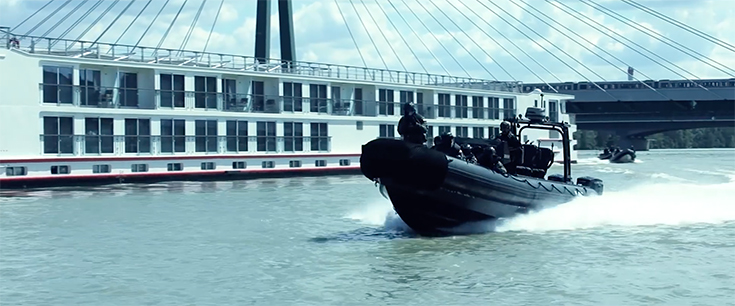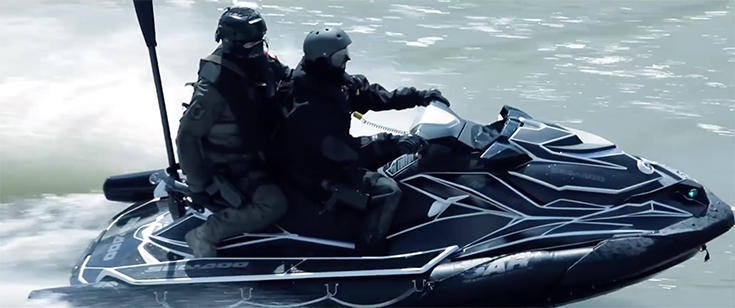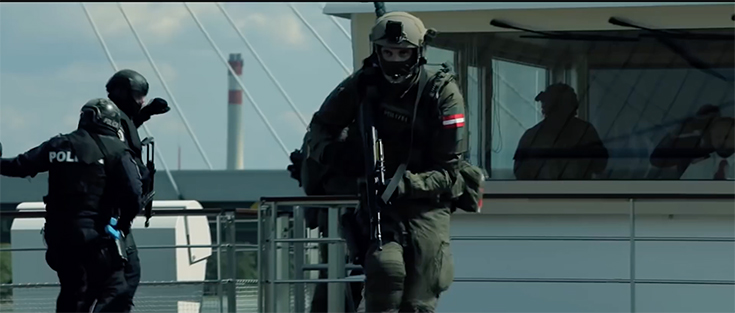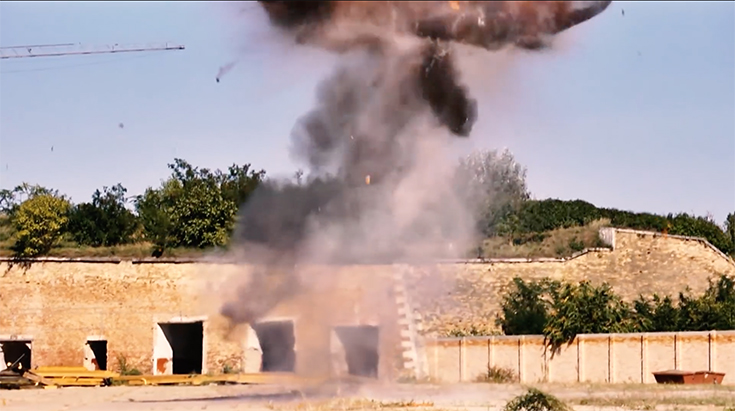Thirty countries take part in seven live scenarios across Europe in massive counter terrorism exercise
As the European Union faces increasing threats from organised crime groups and terrorist attacks inspired by religious, left and right wing ideologies, an effective law enforcement response must include the availability of well-trained and EU-wide interoperable special intervention units. For this reason, Europol and the ATLAS Network (the co-operation platform of 38 special intervention units from EU member states, along with Switzerland, Norway and Iceland) have signed terms of enhanced co-operation.

The ATLAS common challenge is testing effective operational readiness of European special intervention units (image: ATLAS)
An ATLAS Support Office will be established as a team attached to the European Counter Terrorism Centre (ECTC) within the Operations Directorate at Europol’s headquarters in The Hague, the Netherlands. This office will be the main ATLAS interface with Europol and will support the ATLAS Chairmanship by providing contacts to strategic and operational experts at Europol in the areas of combating terrorism and serious and organised crime.
The signing of the agreement coincides with the ATLAS common challenge, a counter terrorism exercise in seven European regions, which took place from October 8 to 11. The exercise aims to test the effective operational readiness of European special intervention units as regards cross-border operations. It will also gather information on warning systems and assistance procedures when tested under real-life circumstances.

The exercise involves a range of different scenarios to test European response (image: ATLAS)
The different scenarios of the ATLAS common challenge are:
Maritime scenario
This trains forces for a hostage situation on a vessel on the Baltic Sea. The difficulties lie in the co-ordination of the assault forces (involving an approach with several helicopters and speedboats in the dark), communication and controlling the different operation phases. The intervention units taking part are: GSG 9 (Germany); DSI (Netherlands); NI (Sweden)’ AKS (Denmark)’ DELTA (Norway); and KARHU (Finland).
Aeroplane scenario
At the disused Teruel airport in Spain, units are trained to deal with a hijacked wide-body aircraft. Current technical developments of ATLAS projects regarding the mechanical opening of aeroplane doors or the opening with breaching methods are to be tested during this operation. The special intervention units taking part are: UEI (Spain); GIGN (France); DSU (Belgium); GIS (Italy); GEO (Spain); and GOE and GNR (Portugal).
Metro scenario
This scenario involves terrorists taking 500 hostages on a metro train in Warsaw. The special intervention units will try to free and evacuate all the hostages and units taking part are: BOA (Poland); OMEGA (Latvia); ARAS (Lithuania); and K-Komando (Estonia).
Mass hostage scenario
In the historical Slovakian town Komárno, a situation similar to that of Paris in 2015 is being re-enacted. The main difficulties here are the rapid response to highly mobile offenders, co-ordination of many different units and the use of armoured vehicles or special vehicles. EKO Cobra will assist the Slovakian unit with up to 50 officers during the operation. The units taking part are: LYNX (Slovakia); Cobra (Austria); URNA (Czech Republic); TEK (Hungary); Red Panther (Slovenia) and SIU (Croatia).
Land/sea scenario
Special intervention units: VIKING (Iceland), ERU (Ireland), PSNI (Northern Ireland), SCO 19 (England)
Scenario: this scenario is based on a counter terrorism operation which starts in Iceland and ends in Northern Ireland through cross-border cooperation with a common assault.
Train and CBRN scenario
In the German federal state of Baden-Württemberg, a passenger train has been taken over by terrorists. In the course of negotiations the units gain information that a dirty bomb could be used, so CBRN specialists from the French units RAID are brought in. Special intervention units taking part are: SEK (BW-Germany); USP (Luxembourg); RAID (France); SIU (Switzerland); and NOCS (Italy).
Bus hijacking scenario
A coach has been hijacked in northern Greece. It is being tracked by Greek and Bulgarian special intervention units to Bucharest. In order to prevent it entering Ukraine, the units assault what are now two hijacked coaches. The operation is being co-ordinated by a crisis centre in Bucharest and units taking part are: EKAM (Greece); EAO (Cyprus); SOBT (Bulgaria); and SIAS and BSIJ (Romania).

Image: ATLAS
During the entire exercise a central information and co-ordination hub will be installed at Europol’s headquarters. Liaison officers from the different regional organising units, alongside members of the ATLAS Command and Control Forum, will be present to visualise situation reports of the transnational operations as well as to support the regional operation co-ordination.
Europol’s Executive Director Catherine De Bolle noted: “I am very pleased to open a new chapter of co-operation between Europol and the Special Intervention Units of the EU member states gathered in the ATLAS Network. I am sure that the closer relationship between Europol and ATLAS will bring added value to the preparedness of the law enforcement community and therefore for the safety of all European citizens. One important element we are pleased to see is the facilitation of cross-border deployment of Special Intervention Units. Europol is also committed to supporting ATLAS with the development of ambitious projects for the future, including the establishment of joint training activities and the pooling of resources."

Image: ATLAS
Herbert Kickl, Minister of the Interior of Austria added: “Co-operation between the ATLAS Network and Europol is an important step in the EU and an essential element of the Austrian Presidency of the Council of the European Union. In a crisis situation, special intervention units must be able to support each other across borders.”